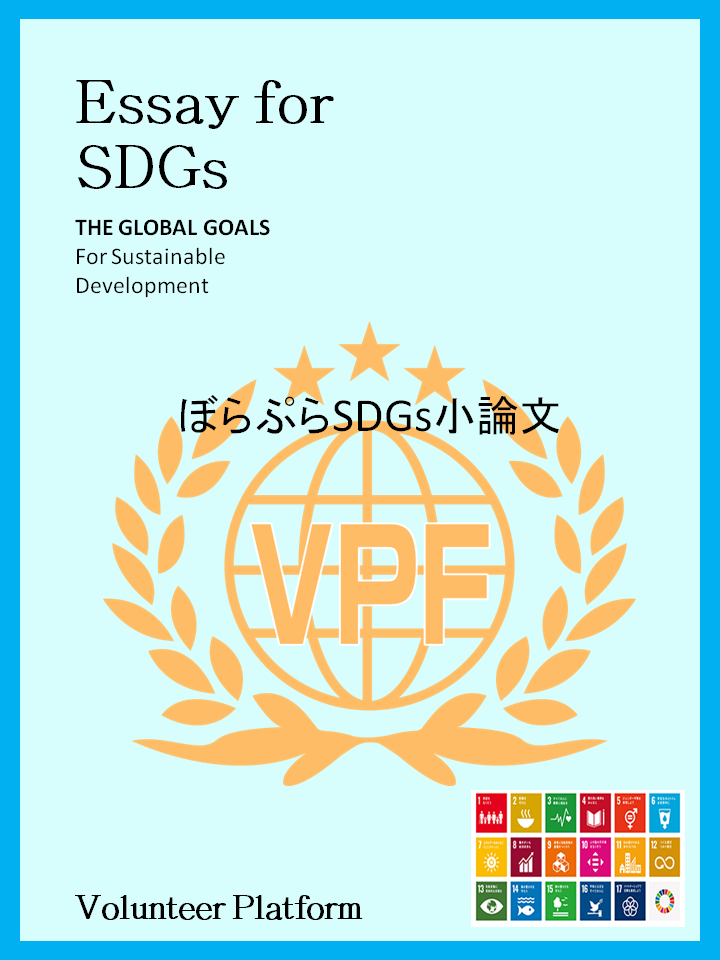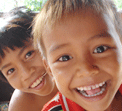[ぼらぷらSDGs小論文]

『Breaking the cycle of poverty』
プレゼン動画
プレゼン資料
※動画内のスライドが見にくい方は、こちらをご確認ください
小論文
『Breaking the cycle of poverty』
Joining this program taught me that things I take for granted are privileges for others. Goal 4, “Ensure inclusive and equitable quality education and promote lifelong learning opportunities for all” reminded me of the importance of addressing the issue of children who lack access to education.
The lack of access to education in poorer countries narrows children’s future careers and opportunities. According to UNICEF (2021), approximately 244 million children, ages 6 to 17, are out of school, due to poverty forcing them to work. These environmental challenges deprive many children of educational opportunities. An article from World Vision states that a presentation by UNICEF (2018) estimated the number of children, ages 5 to 17, unable to attend school, increasing to 258 million children. This number means that 1 in 6 children in this age group worldwide cannot go to school. Particularly, 62 million children don’t have access to primary school education. Primary and secondary education is essential for the children’s futures. Therefore, the lack of progress in reducing the number of children who are out of school is very concerning. Why is this a problem? This is because education levels and employment are correlated. Data from the OECD shows a big gap in employment rates between people with tertiary education and people with below upper secondary level education. Without proper lower secondary education or lower, it is clear that the employment rates would be much lower. Lack of education is the root cause of poverty, as lower employment rates and low-income jobs follow lower education. Poverty and lack of education are a never-ending downward spiral. Therefore, we need to break this vicious cycle of poverty by making education more accessible for those in poorer countries.
Japan has an education system that allows all children ages 6 to 15 to go to school free of charge. School is an important place to learn how to read and write, calculate, get exercise, learn basic manners, and how to communicate with others. Also, until the last day of March in the 3rd grade of middle school, children are prohibited from working jobs. This ensures no child under the age of 15 has to sacrifice their education for work.
Although trying to create this education system from 0 in poorer countries is certainly a tough task, I believe trying to implement bits of Japan’s way of education would be a good idea. Developed countries could donate money and send people to demonstrate how to teach and how to create the fundamentals of the education system. We individuals can also help. Starting by educating ourselves on the different situations of education around the world, we would be capable of getting a wider perspective. This could give us ideas as to where to improve the current policies regarding education. Spreading awareness of the current education systems around the world is also important as well so that people would recognize the problem and politicians would strive to solve it as a result.
I have been passionate about the topic of education for children for a long time, especially education for children who can't go to school. This strong interest is rooted in the times I lived in India, back when I was in elementary school. I vividly remember seeing children clad in ragged clothing begging for money on the streets. They would circle the cars in hopes of getting some loose change. They were barefooted and thin. When I asked my parents why the children were begging for money, they told me they had to do so to survive. This was shocking to me, as my friends and I didn't have to do anything for basic needs, while children of similar age were fighting for survival. I hope that there will be more children who will get access to quality education, and fewer children who are forced to do child labor. Every child deserves to get an education and live the life they'd want to live in. With more people understanding the importance of education, the world would certainly become a better place.
オンライン研修を受講した感想
総合的な満足度
大変満足

受講前の気持ち
コロナ下でもできるボランティア活動を探していた、SDGsについて学びたい、社会問題に興味がある
受講後の気持ち
勉強になった!
SDGsについて行動したくなった!
SDGsを自分ゴトとして捉えられるようになった!
研修を受講した理由を教えて下さい
SDGsについて学校で習って興味を持ったのでもっと学んでみたいと思ったから。
研修を受講した感想は?
学んでみて、以前住んでいたアジアの国のことを思い出し、子どもの教育や労働について考えるようになった。もっと積極的に発言したり学んでみようと思いました。
今後、今回の経験をどのように活かしていきたいですか?
もっと積極的に発言したり学んでみようと思いました。
これから受講される方へアドバイスお願いします!
SDGsは自分達と遠いものではなく身近に感じることができます。
ぼらぷらへ応援メッセージ
会員様から頂いたメッセージは私達にとって何よりの励みになります!!
今までSDGsについてあまり知りませんでしたが、1つ1つのテーマがわかりやすく家でも親と話したり考えることができました。






 LINE相談
LINE相談
